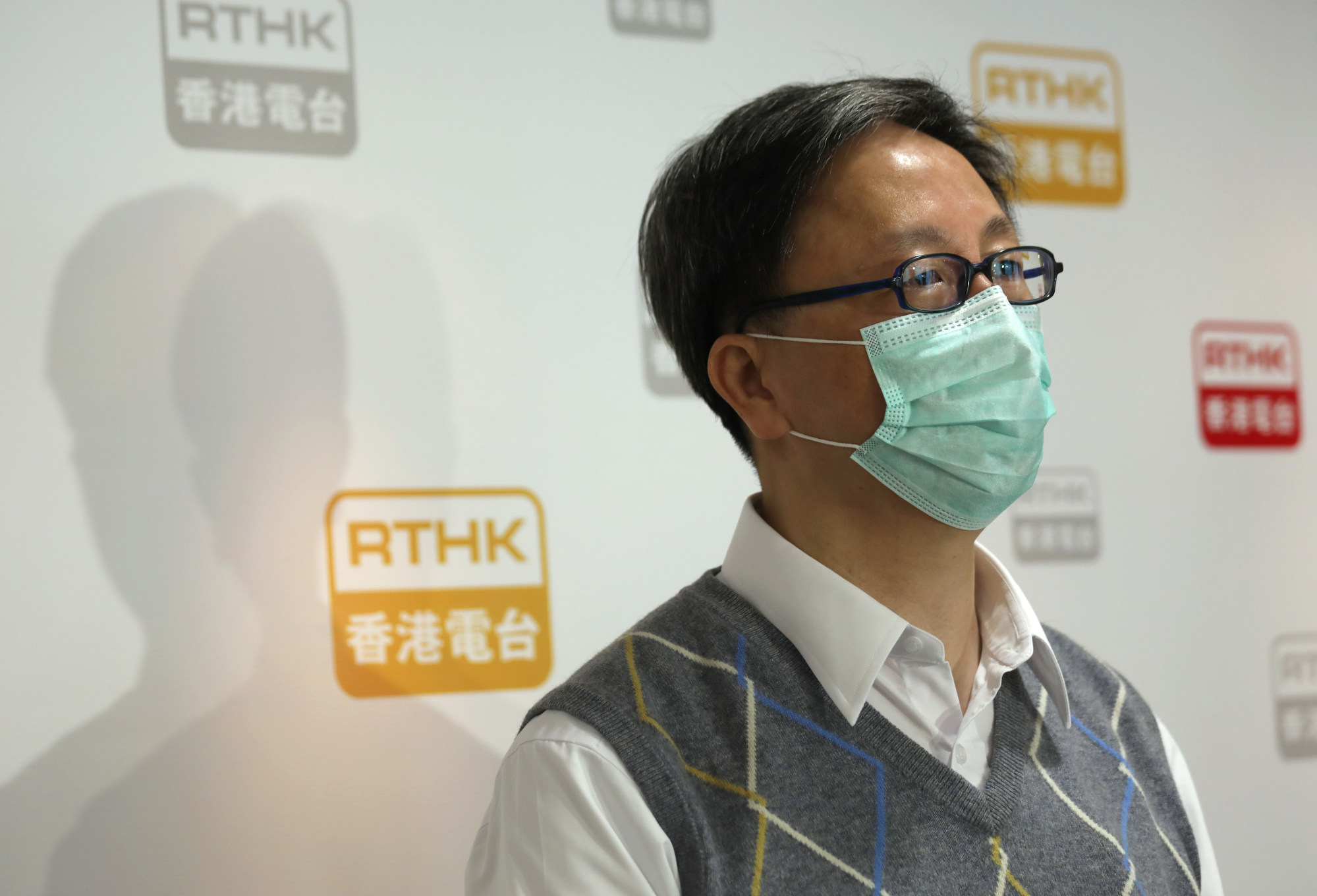
Coronavirus: Hong Kong health experts call for doubling of antiviral distribution rate for elderly as city logs 4,276 cases
- Health experts call for Covid-19 antiviral distribution rate among those aged 60 and above to be increased from below 40 per cent to at least 80 per cent
- Authorities urge elderly residents not to overlook their symptoms and to make use of available channels to get medication
Hong Kong needs to more than double the number of elderly people being prescribed Covid-19 antivirals, as many of them are unable to take full advantage of other healthcare resources aimed at protecting residents from the virus, medical experts have said.
Health officials on Tuesday did not indicate whether the current distribution rate was too low, but urged residents to take advantage of the available channels to get medication, adding authorities had noted quite a number of “fatal cases” recently involving the elderly in the community.
“We urge [the elderly] not to overlook their symptoms because most of the time they were asymptomatic or they thought their conditions were quite stable. But their situation or conditions could deteriorate quite rapidly,” said Dr Gladys Kwan, a chief manager of the Hospital Authority.
Designated Hong Kong taxi drivers start taking travellers to quarantine hotels
Hong Kong on Tuesday logged 4,276 Covid-19 infections, including 301 imported cases, and six additional deaths, all involving elderly residents not living in care homes. The city’s Covid-19 tally stands at 1,330,399 cases, with 9,478 related fatalities.
Kwan called on elderly patients to seek medical help as soon as possible, adding that residents could get Covid-19 oral drugs from public hospitals and designated clinics, and through teleconsultation services.
She said those isolating at home could access the authority’s teleconsultation services through a hotline, and get the oral pills delivered to their residence.

Microbiologist Dr Ho Pak-leung, head of the University of Hong Kong’s Centre for Infection, earlier on Tuesday said the current coronavirus antiviral distribution rate of below 40 per cent among people aged 60 and above was “unacceptably low” and needed to reach at least 80 per cent.
“It shows our elderly residents are lacking community support to some extent. They might not be able to do a rapid antigen test or go to a community centre for a polymerase chain reaction test by themselves. And they didn’t detect their positive statuses soon enough,” he said.
Government data also showed that 24,701 residents aged 60 and above had contracted the virus between June 1 and July 24. According to the Hospital Authority, about 9,600 courses of coronavirus antivirals were prescribed during the same period. Even if all of the prescriptions were given to elderly people, less than 40 per cent of infected older residents would have received the medication.
Hong Kong may shorten hotel quarantine and introduce Covid colour code together
Ho also suggested the government set key performance indicators to ensure at least 80 per cent of infected residents aged 60 and above received antivirals and had access to other healthcare resources. Such support was especially critical for unvaccinated elderly, he added.
“Even if the government did launch telemedicine prescription services, there’s no way to ensure whether the elderly people are able to handle the related mobile device applications. Support from the community and other government bureaus is needed,” Ho said.
Respiratory medicine expert Dr Leung Chi-chiu also said the current distribution rate was “far from ideal”.
“The antivirals work best when they are given early in the infection of a patient. Their effectiveness will fall after five days of infection, and the elderly and the vulnerable are the target groups that should be prioritised for prescription,” he said.
Leung suggested that authorities could deliver more medicine through outreach teams to support isolated residents in the community.
Separately, the Civil Aid Service announced it had revamped the management of the community isolation facility at Penny’s Bay in view of the rising number of people sent to quarantine there.
“As the number of guests continues to increase, we have to adopt a more efficient approach to cater to their needs. They have sacrificed their personal freedom for the sake of protecting the community, therefore we strive to provide the best possible experience for them,” said Leung Kwun-hong, chief staff officer of the Civil Aid Service.
Smaller care teams have been formed to provide dedicated services to those isolating in different areas, with each consisting of two to three members from the service, retired volunteers from the disciplined forces and housekeeping staff.
Hong Kong aims ‘to boost Covid jabs uptake for unvaccinated elderly’
Each team works in shifts to provide 24-hour service to 60 to 80 rooms. Duties include daily phone calls to keep track of guests’ health conditions and answering calls regarding issues during isolation.
Guests will be allocated designated rooms once they arrive at the facility, so that they do not have to wait outside in the heat. They can proceed with check-in arrangements after they have settled down.
Additional reporting by Charmaine Choi



